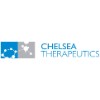
Function of High Density Lipoproteins in Acute Coronary Syndromes
Acute Coronary SyndromeHigh density lipoproteins (HDL) have many effects that protect against cardiovascular diseases. In an acute heart attack (acute coronary syndrome -ACS), HDL change in composition and structure, reflecting the inflammatory environment that accompanies an ACS. The investigators will examine the function of HDL during an ACS and again when the patient has recovered.

Safety and Efficacy of Oral AGN 203818 for the Relief of Irritable Bowel Syndrome Pain
Irritable Bowel SyndromeThis study will explore the safety and effectiveness of different doses of AGN 203818 in relieving Irritable Bowel Syndrome pain. The study is being conducted in 2 parts. Part A enrolled 213 pts dosed with either 3, 20, 60 mg AGN 203818 or placebo over 4 week treatment duration. Part B will enroll 320 pts and dose with either 60, 100, 160 mg BID AGN 203818 or placebo over 12 week treatment duration.

Study To Assess The Clinical Benefit Of Droxidopa In Subjects With Chronic Fatigue Syndrome
Chronic Fatigue SyndromeOrthostatic Hypotension2 moreA subset of patients suffering from chronic fatigue syndrome exhibit symptoms of neurally mediated hypotension. While the underlying pathophysiology of chronic fatigue syndrome is not precisely understood, a dysfunction of the autonomic nervous system is thought to play a role in this subset of patients. In several small studies, subjects within this subset have noted improvement in their chronic fatigue symptoms when treated for their neurally mediated hypotension. As droxidopa acts on the autonomic nervous system and has been shown to ameliorate symptoms of neurally mediated hypotension, it is hypothesized that droxidopa could aid in the treatment of chronic fatigue symptoms. Neurally mediated hypotension has been associated with patients suffering from chronic fatigue syndrome. Droxidopa meanwhile has been approved in Japan for the treatment of the symptoms of neurogenic orthostatic hypotension. As such, it is hypothesized that regulating the autonomic nervous system in patients with Chronic fatigue syndrome may prove to be clinically beneficial.

VISTA-16 Trial: Evaluation of Safety and Efficacy of Short-term A-002 Treatment in Subjects With...
Acute Coronary SyndromeThe objective of this study is to evaluate the safety and efficacy of short-term A-002 treatment on morbidity and mortality when added to atorvastatin and standard of care in subjects with an acute coronary syndrome (ACS).

Phase I/II Trial of Sodium Stibogluconate in Myelodysplastic Syndrome
Myelodysplastic SyndromesSodium stibogluconate may stop the growth of cancer cells by blocking some of the enzymes needed for cell growth. This was originally designed as a phase I/II trial studying the side effects of sodium stibogluconate and how well it works in treating patients with myelodysplastic syndromes. Unfortunately, due to funding issues, the phase II portion was never conducted.

To Demonstrate Superiority of Decitabine Over Azacitidine in Subjects With Intermediate- or High-risk...
Myelodysplastic SyndromesThe purpose of this study is to compare the response of patients with Intermediate or High Risk myelodysplastic syndromes (MDS) following treatment with decitabine or azacitidine.

Azacitidine and Lintuzumab in Treating Patients With Previously Untreated Myelodysplastic Syndromes...
LeukemiaMyelodysplastic SyndromesRATIONALE: Drugs used in chemotherapy, such as azacitidine, work in different ways to stop the growth of cancer cells, either by killing the cells or by stopping them from dividing. Monoclonal antibodies, such as lintuzumab, can block cancer growth in different ways. Some block the ability of cancer cells to grow and spread. Others find cancer cells and help kill them or carry cancer-killing substances to them. Giving chemotherapy together with monoclonal antibodies may be a better way to block cancer growth. PURPOSE: This phase II trial is studying the side effects and how well giving azacitidine together with lintuzumab works in treating patients with previously untreated myelodysplastic syndromes.

Initiating Transdermal Estradiol Therapy in Turner's Syndrome
Turner's SyndromeThis is a multicenter, randomized, controlled, semi-blinded study to compare two low doses of estradiol administered by recently available transdermal patches for the initiation of puberty in Turner syndrome girls 11.5-13.0 years old in conjunction with growth hormone (GH) therapy. The specific hypotheses to be tested are: when combined with growth hormone (GH) treatment, low dose transdermal estradiol (LTE2) replacement will be more effective in stimulating feminization, height velocity, and bone mineral density without compromising growth potential than very low dose transdermal estradiol (VLTE2), which will in turn be superior to GH alone in effects on feminization, height velocity, and bone mineral density.

Evaluation of Two Treatments for Chronic Post Concussion Syndrome
Post Concussion SyndromeHead InjuryThis study is designed to investigate factors that are associated with prolonged recovery from mild head injury. The investigators are particularly interested in defining the impact of anxiety related variables, such as health anxiety and anxiety sensitivity in the maintenance of symptoms. A further goal of the study is the evaluation of two treatment methods that have been proposed to be effective in reducing the impact of post concussion symptoms. The investigators hypothesize that a treatment which is directly focused on changing these anxiety related variables will be more effective than one that does not.

Bortezomib and Vorinostat in Treating Patients With High-Risk Myelodysplastic Syndrome or Acute...
LeukemiaMyelodysplastic SyndromeRATIONALE: Bortezomib and vorinostat may stop the growth of cancer cells by blocking some of the enzymes needed for cell growth. Giving bortezomib together with vorinostat may kill more cancer cells. PURPOSE: This phase II trial is studying how well giving bortezomib together with vorinostat works in treating patients with high-risk myelodysplastic syndrome or acute myelogenous leukemia.
